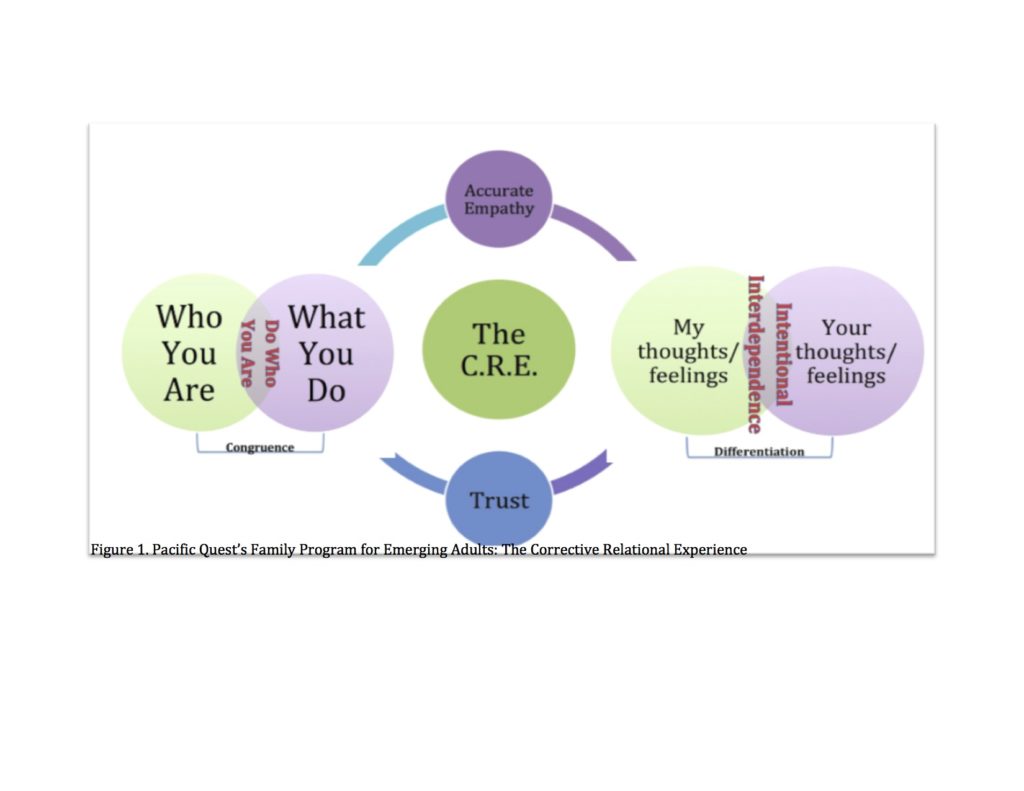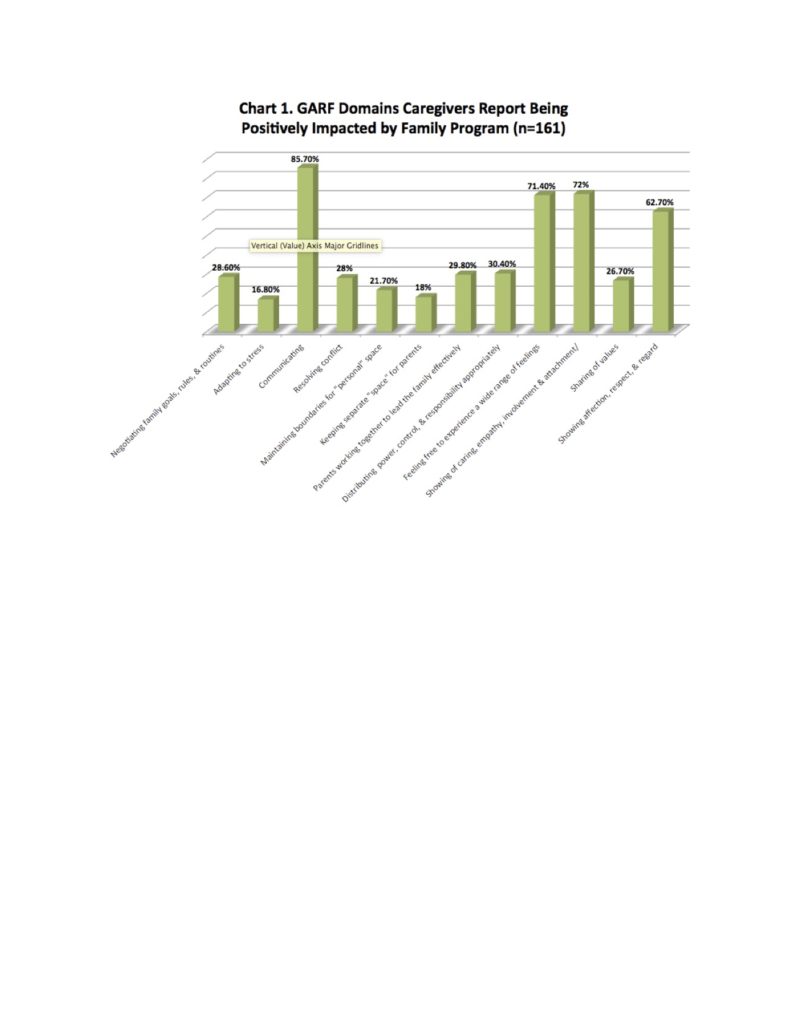Dr. John Souza, Jr., LMFT, DMFT
Introduction
Outcomes studies on wilderness therapy/outdoor behavioral healthcare (WT/OBH) programs serving youth ages 12-17 have demonstrated that family involvement in treatment increases the likelihood of long-term maintenance of individual students’ gains from such programs. This same body of research has linked caregiver participation in family activities to an increase in trust and empathy between caregivers and students. However, as some researchers have uncovered, these gains may not necessarily generalize to improvements in family functioning. Moreover, when considering family involvement in the treatment of young adults (herein referred to as emerging adults or EAs; ages 18-25) there remains the historical remnants of a socially constructed bias against such involvement; based on the presupposition that the paragon of EA development is “independence” from caregivers.
Pacific Quest’s Family Program for Emerging Adults
At Pacific Quest (PQ) we have considered the above research findings and social constructions, and in response have developed our Family Program for Emerging Adults based on a practice-based evidence/research model. Data from our practice suggests not only is family work with EAs appropriate, it can often be a critical element of their treatment process as caregivers report a correlation between our Family Program and an improvement in family functioning. This has led us to conclude that the ultimate aim in the treatment of EAs may not necessarily be to only encourage greater independence, but also to cultivate intentional interdependence.
Clinical and Theoretical Foundations
PQ’s Family Program for EAs is embedded within an integrative WT/OBH model designed to treat a variety of emotional and behavioral problems by way of horticultural therapy and other experiential modalities. Our Family Program for EAs builds on this model by creating opportunities for corrective relational experiences (CREs); unexpected moments when caregivers and EAs are able to attune with one another and are therefore transformed. During these CREs caregivers and students learn in what ways they mutually influence one another and thus how to be intentional with that influence. The nature of human nature is that we are not independent, but rather are reliant upon each other. Through intentionally designed CREs, family’s at PQ become more cognizant, and thus able to influence this reality.
The Corrective Relational Experience
Over several years of observing Pacific Quest’s Family Program for EAs, we have come to understand that while there are a number of smaller CREs throughout the two-day intensive program (consisting of caregiver-only meetings, family therapy with primary therapists, and multi-family therapy groups) the overall Family Program is itself a CRE. We have found this CRE to consist of two primary clinical dynamics: Differentiation and congruence (see Figure 1): Development of one positively influences development of the other. Moreover, these processes mediate the establishment of accurate empathy and trust, which in turn can encourage the maintenance of differentiation and congruence.

Improvements in Family Functioning
PQ’s Family Program for EAs has been correlated with improvements in family functioning. This has been measured through a pre/post-test design employing the psychometrically supported Global Assessment of Relational Functioning (GARF). The GARF consists of three subdomains:
• Interactional/Problem Solving Skills
• Hierarchy and Organization
• Emotional Climate
Of 161 caregiver respondents, all reported improvements in the three GARF subdomains (see Chart 1). Overall, the subdomain reported most positively impacted during Family Program was Emotional Climate. Communication (an aspect of the subdomain Interactional/Problem-Solving Skills) was identified by 85.7% of respondents as the specific aspect of family functioning most positively impacted by the Family Program.

Conclusion
At Pacific Quest we have answered the call from researchers to improve family engagement in WT/OBH. We have also recognized the interdependent nature of human nature and used this as the impetus for our work with EAs and their families. By employing a practice-based evidence/research model we have correlated our Family Program’s CRE approach with improvements in the emotional climate and communication aspects of family functioning. Future practice/research with EAs might consider how to generalize such improvements in family functioning by creating CREs with others (e.g., siblings or families-of-creation) and in other environments (e.g., a transitional program or a caregiver’s home).